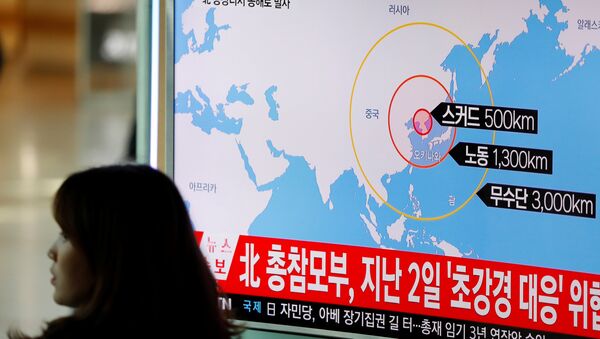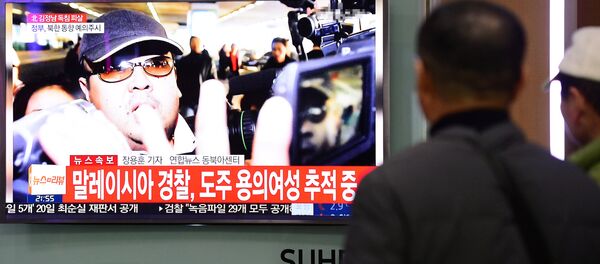"It is highly possible that North Korea's latest missile tests are not only meant to serve as a response to joint military drills conducted by the United States and South Korea, but are also aimed at diverting attention away from the investigation of Kim Jong-nam's murder," the analyst said.
Cheong Seong-Chang suggested that the latest launch was meant to "scare" Washington's allies in the region, Japan and South Korea, instead of the United States per se. The analyst added that Pyongyang's true motives could only be assessed after it issues a formal statement on the latest launch. North Korea has not commented on the missile launch yet, but last week the country promised to respond to the South Korean-US military drills which kicked off on Wednesday.
Kim Dongyeop, a professor at the Institute for Far Eastern Studies at Kyungnam University, suggested that the North fired Scud ER, also known as the Hwasong-7, or Rodong missiles. Both are derivatives of the R-17 Elbrus, a tactical ballistic missile initially developed by the Soviet Union in the late 1950s.
"The launch which took place on September 5, 2016, was meant to demonstrate accuracy of [North Korean] missiles since the three Scud-ERs fired that day landed in the same spot. This test has been apparently designed to demonstrate that [Pyongyang] is capable of dispersing missiles launched along a similar trajectory," the expert explained. "They could have also wanted to show that they are capable of targeting several US bases in Japan with a single launch."
Dr. Kwak Tae-Hwan, Professor Emeritus at Eastern Kentucky University and former president of the Korea Institute for National Unification, criticized South Korea's decision to use US-made Terminal High Altitude Area Defense (THAAD) to protect the country from missile threats ostensibly emanating from Pyongyang, saying that the deployment will "further complicate" the peace process on the Korean Peninsula.
Never miss a story again — sign up to our Telegram channel and we'll keep you up to speed!





